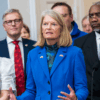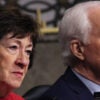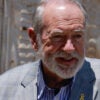Tunisia has been billed as the success story of the Arab Spring.
As countries such as Syria, Libya and Egypt struggle with conflict, Tunisia — the birthplace of the Arab Spring in December 2010 — is positioning itself as a rare source of freedom and democracy in the region.
“[Tunisia] offers the opportunity for the U.S. to have, for the first time, a truly democratic partner in the Arab world,” said M’Hamed Ezzine Chelaifa, the ambassador of Tunisia to the United States, who spoke at The Heritage Foundation today about the future of his country.
Last weekend, Tunisians peacefully voted in their country’s first full parliamentary election under its new constitution, choosing the secular Nidaa Tounes as the dominant party, and knocking the Islamist party, Ennahda, into second place.
Just three years ago, the Islamists came to power after the revolution overthrew the government of longtime dictator President Zine el-Abidine Ben Ali.
>>> Watch: ‘Tunisia: Moving Forward,’ a Heritage Foundation Event
Still, challenges remain for this North African country, which has struggled with terrorism and economic insecurity.
Some 3,000 young Tunisians have joined ISIS, the Sunni extremist group operating in Syria and Iraq, and Tunisian security forces have failed to contain the flow of Islamic extremism.
Before the Heritage event, Chelaifa spoke to the hope and troubles of Tunisia in an exclusive interview with The Daily Signal. Watch the video above.





























